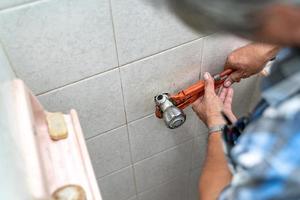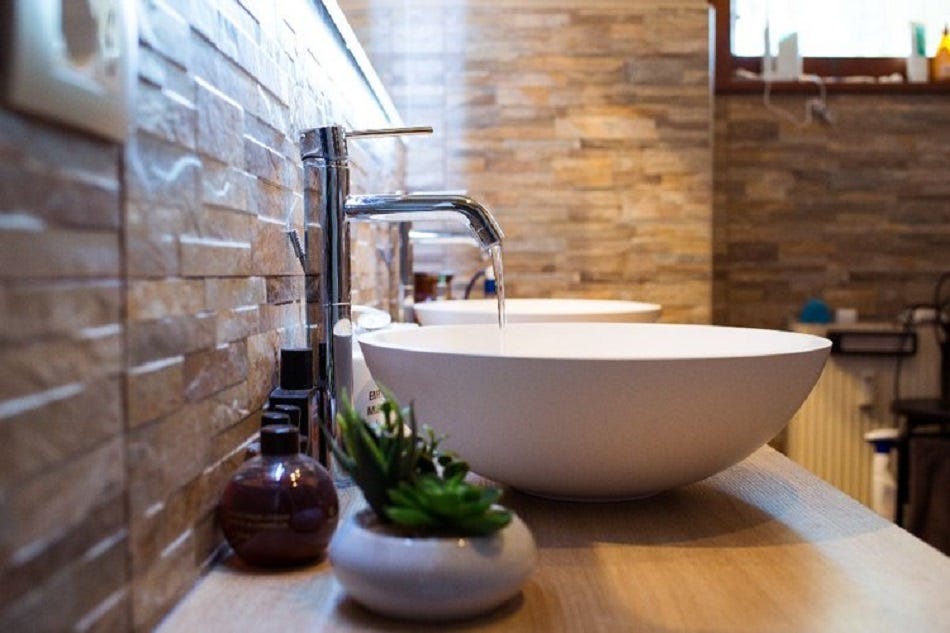Useful Bathroom Plumbing Guidelines for Beginners
Useful Bathroom Plumbing Guidelines for Beginners
Blog Article
What're your ideas regarding 11 Must-Read Tips for Plumbing a New House?

For new homeowners, understanding and preserving shower room plumbing can save both time and money by avoiding expensive problems down the line. Right here are some necessary bathroom plumbing suggestions to help you keep whatever running smoothly.
Familiarize Yourself with the Main Shut-Off Valve
Understanding where the primary water shut-off shutoff is located in your home is important. This enables you to promptly switch off the water supply in case of significant leakages or throughout pipes emergencies, protecting against considerable water damages.
Regularly Evaluate for Leakages
Little leaks can cause huge issues. Consistently check under sinks, around commodes, and near pipes fixtures for any type of indications of leaks. Search for dampness, small drips, or corrosion. Capturing and fixing leakages early can stop a lot more major damages and save water.
Don't Ignore Slow Drains Pipes
If your sink or bath tub is draining slowly, it's often a sign of an obstruction creating. Addressing this early can protect against a full blockage. Use a bettor or a plumbing technician's snake to clear out particles. Prevent using chemical drainpipe cleaners as they can harm your pipelines in time.
Know What Not to Flush
Toilets are not waste disposal unit. Prevent purging anything aside from toilet tissue and human waste. Items like wipes, womanly hygiene items, and cotton swabs must be thrown away in the trash to stop blockages and sewer back-ups.
Install Strainers in Drains
Area strainers in your sink and bath tub drains to capture hair and other particles before they enter your pipes system. Cleaning the filters frequently will help stop buildup and maintain water moving easily.
Maintain Your Hot Water Heater
Guarantee your water heater is set to an ideal temperature level (generally about 120 degrees Fahrenheit) to avoid hot and reduce energy use. Flush the tank every year to remove sediment build-up, which can reduce the effectiveness and life-span of your heater.
Update Your Components
If your home has older fixtures, think about updating to more effective versions. Modern toilets, showerheads, and faucets are made to use less water while supplying excellent pressure, which can dramatically decrease your water expense and ecological impact.
Be Cautious with Do It Yourself Plumbing Repair Works
While it's alluring to take care of all home repairs by yourself, beware with plumbing. Some concerns may require expert proficiency, particularly if they include primary water lines or sewer fixings. Employing a specialist can often be much more economical than do it yourself, specifically if it stops additional damage.
Plan For Cold Weather
Protect your pipes from cold throughout winter by insulating pipes in unheated areas like basements, attic rooms, and garages. During severe cool, allow cold water drip from taps offered by revealed pipes to aid prevent freezing.
Set Up Regular Maintenance
Think about scheduling annual assessments with a licensed plumber. They can spot concerns that you could miss, such as hidden leaks or wear and tear on pipelines and components. Routine maintenance helps extend the life of your pipes system and can stop emergency situations.
Final thought
Understanding and maintaining your home's bathroom pipes can stop numerous common issues. By adhering to these crucial pointers, you can ensure your restroom continues to be useful and effective, saving you money and time over time.
Essential Plumbing Tips for Homeowners: What You Should Know
Plumbing issues can be a nightmare if left unattended, often resulting in costly repairs and significant damage to your home. That's why it's crucial for homeowners to arm themselves with the essential home plumbing maintenance tips and knowledge to prevent such mishaps and maintain the efficiency of their plumbing system.
?Get to know the various aspects of residential plumbing maintenance, from identifying warning signs of potential issues to simple tasks you can perform to keep your plumbing in top condition. By empowering you with the necessary plumbing tips for homeowners in this guide, we will help you tackle everyday plumbing challenges with confidence to keep your home's plumbing system flowing smoothly.
Mastering Home Plumbing Tips
Understanding the basic home plumbing tips allows homeowners to detect issues early on, take prompt action, and prevent them from becoming major headaches. With this proactive approach, homeowners can save both time and money.
Moreover, having a grasp of plumbing basics enables homeowners to communicate effectively with plumbers or other professionals when seeking assistance. Being able to accurately describe the problem and understand the proposed solutions not only streamlines the repair process but also helps homeowners make informed decisions about their plumbing systems.
Whether it's discussing drainage solutions, leaky taps, or fixture installations, a solid understanding of basic home plumbing maintenance tips promotes better collaboration between homeowners and professionals to ensure that repairs or upgrades meet the homeowner's needs and expectations.
Home Plumbing Maintenance Tips
Here are some basic yet essential home plumbing tips to keep your plumbing in its tip-top shape:
Be Cautious During Renovations
When renovating your home, be mindful of the location of pipes to avoid accidentally damaging them. Plan your renovations carefully and, if unsure, consult a professional plumber to help identify potential hazards.
Avoid Flushing Trash Or Wipes Down Drains
Flushing items like wipes, sanitary products, or paper towels down the toilet can lead to clogs and damage to your plumbing system. Dispose of these items properly in the trash.
Know The Location Of The Water Mains Cut-Off
In case of a plumbing emergency, such as a burst pipe, knowing the location of the water mains cut-off valve can help minimise damage by quickly shutting off the water supply to your home.
Avoid Chemical Drain Cleaners
Chemical drain cleaners can damage pipes and harm the environment. Instead, use natural alternatives like a mixture of baking soda and vinegar or get help from a qualified plumber for stubborn clogs.
Check Seals And Connections Regularly
Inspect seals and connections around sinks, toilets, and appliances for signs of leaks or damage. Address any issues promptly to prevent water damage and mould growth.
https://www.eze-flowplumbing.com.au/essential-plumbing-tips-for-homeowners-what-you-should-know

Book An Appointment Report this page